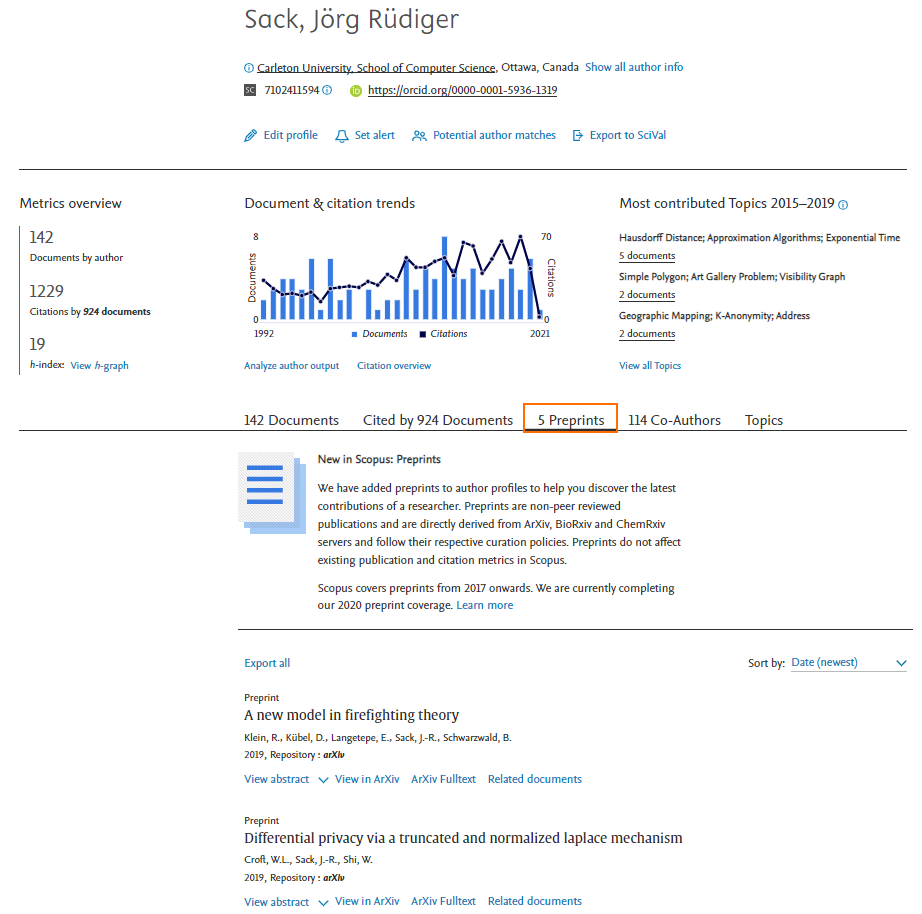Preprint content in Scopus Author Profiles continues to grow with the addition of SSRN
In January this year, we used this blog to share the good news that preprints have been added to Scopus Author Profiles as a content type to help you get an early view into the research focus of peers and potential collaborators. Preprints can be a helpful complement to peer-reviewed literature to gain insight into researcher endeavors.
At that stage, we enriched 1 million author profiles with more than 900,000 preprints dating back to 2017. Those preprints were drawn from the main preprint servers in the areas of Physical Sciences (arXiv and ChemRxiv) and Biomedical Sciences (bioRxiv and medRxiv).
Now we are excited to announce that we’ve begun adding content from the Social Sciences preprint server SSRN to Scopus Author Profiles. By the end of this year, we expect to feature links to around 250,000 SSRN preprints dating back to 2017, which will bring the number of enriched Author Profiles to 1.4 million.
In addition, it is now possible to request changes to preprints associated with your author profile via the Author Feedback Wizard (AFW).
If an author already has a peer-reviewed publication history in Scopus, any preprints they’ve published on the relevant servers since 2017 will be visible via a tab on their author profile page.
What is a preprint?
It is an early version of a scholarly paper. Preprints differ from Articles-in-Press in that they aren’t peer-reviewed or accepted for publication in a journal. In some fields, preprints have become an important communication vehicle.
In recent years, particularly since the onset of COVID-19, preprint popularity has been growing, largely because preprints offer an opportunity to share research quickly, openly and early. Within Scopus, the ability to see preprint publications for an author provides early insight into the focus area, and can be a good complement to their record of peer-reviewed literature. Preprint insights can be a great route for finding collaborators at the cutting edge, can help funding agencies monitor progress, and can allow researchers to lay claim to an idea or get early feedback.
Still in the pipeline: Preprint information is currently only visible in Scopus Author Profiles. In the future, our goal is to make it a searchable content type in Scopus.
You’ll find a really helpful FAQ on preprints and Scopus in the January blog post.


